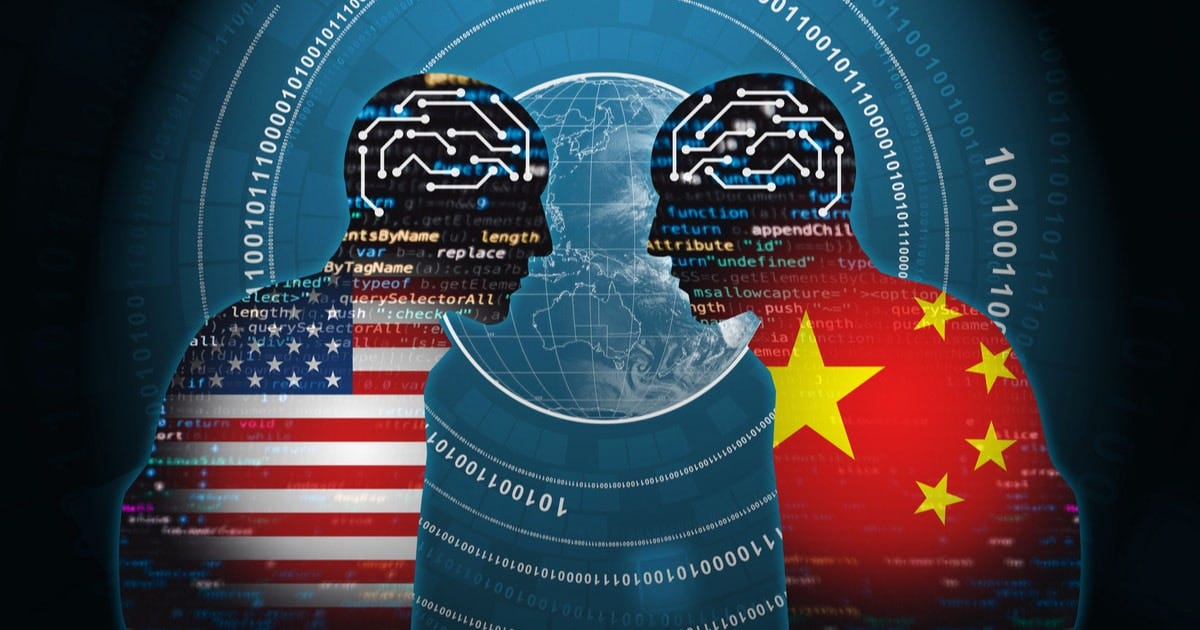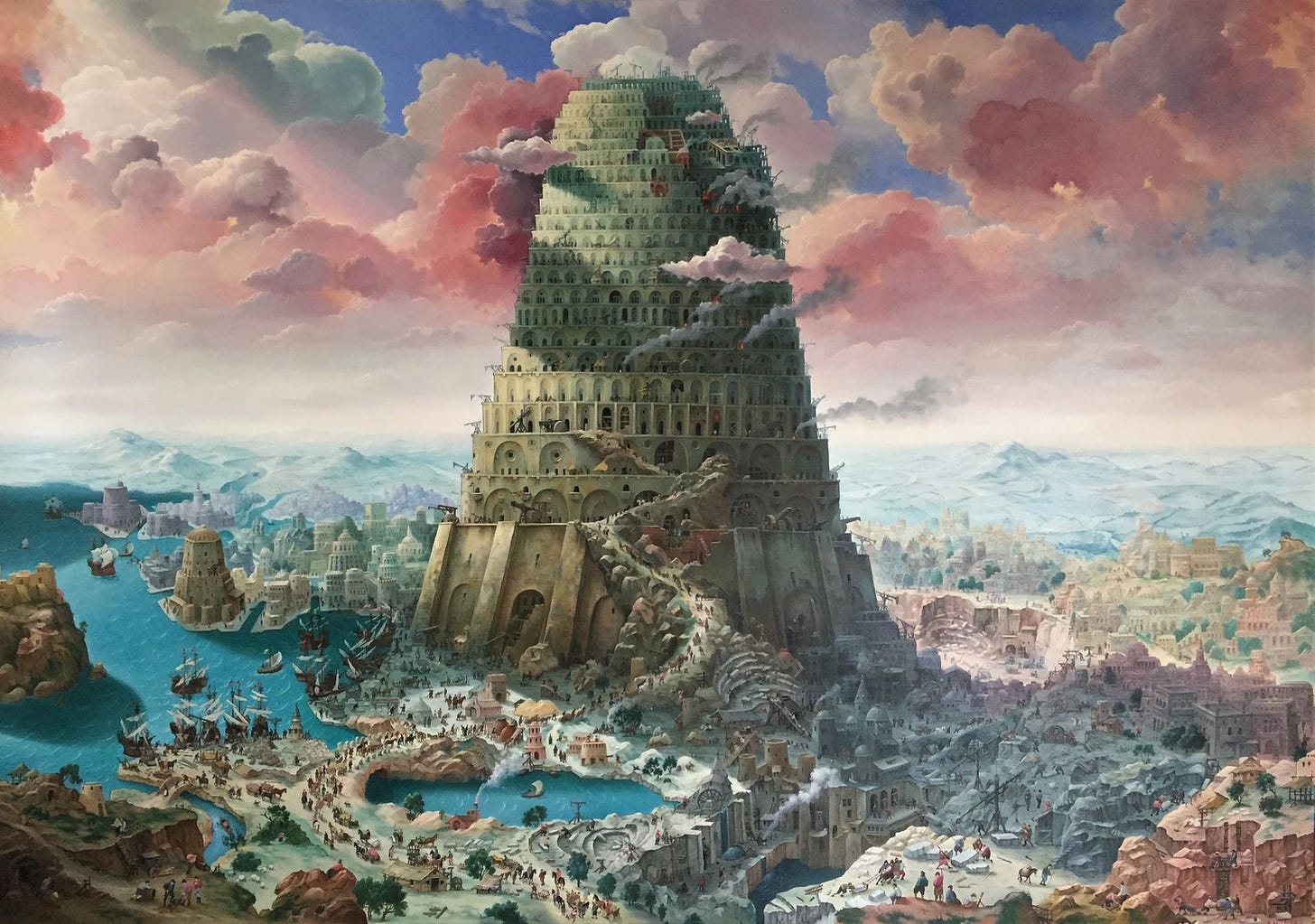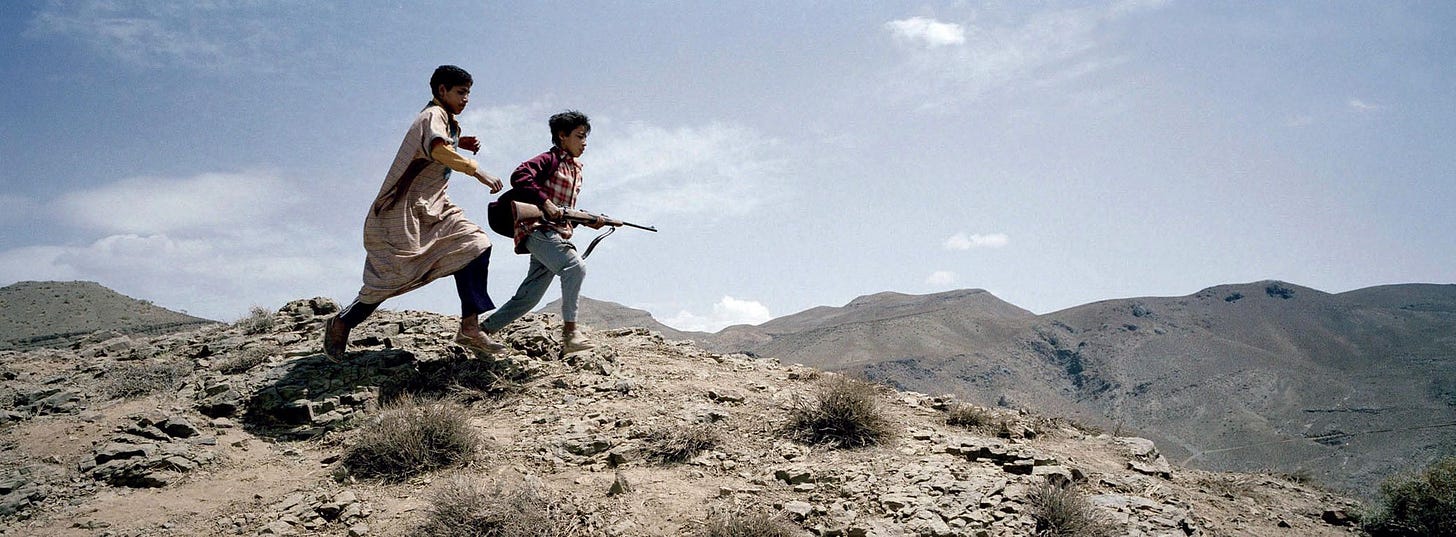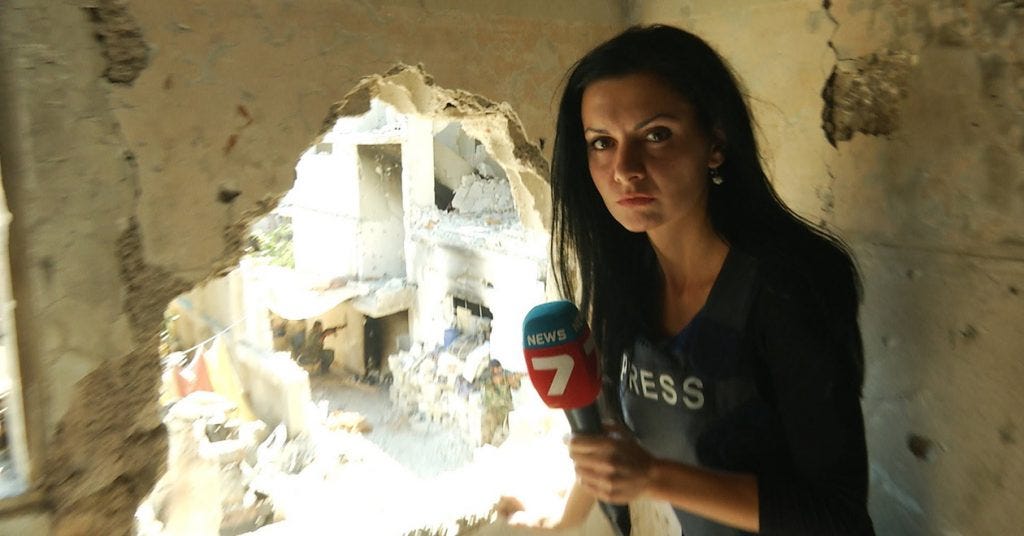Splinternet & the Specter of a Digital Iron Curtain
"Truth exists; only lies are invented." Georges Braque
|
You can listen to me reading this essay here.
It looks like we could have a modern-day Tower of Babel on our hands. The war in Ukraine and the resultant Russian digital isolation could initiate a Splinternet.
Splinternet (also referred to as cyber-balkanization or internet balkanization) is a characterization of the Internet as splintering and dividing due to various factors, such as technology, commerce, politics, nationalism, religion, and divergent national interests.
How does this relate to the Tower of Babel?
Like many enduring stories, the Tower of Babel is referenced across numerous cultures. We can find it in all three of the world's major religions, namely Judaism, Christianity and Islam. And further back in the stories of the ancient Sumerians and Assyrians and the Greco Romans. A.S. Kline translates Ovid's Metamorphoses 1.151-155 as:
"Rendering the heights of heaven no safer than the earth, they say the giants attempted to take the Celestial kingdom, piling mountains up to the distant stars. Then the all-powerful father of the gods hurled his bolt of lightning, fractured Olympus and threw Mount Pelion down from Ossa below."
In Gen. 11:9, the name of Babel is associated with the Hebrew verb balal, 'to confuse or confound.'" According to the story, when God saw the people working together to build a tower to reach heaven, naturally, he wasn’t happy about it. He solved the problem by causing them to suddenly speak different languages. No longer able to communicate, confusion abounded. The tower was abandoned, and the people spread across the earth. It would take a long time for them to unite again.
The printing press was one of the most important inventions uniting people and giving them access to information the elite had previously controlled. For the first time, the common folk were able to interpret religious texts the way they wanted.
The internet went much farther, making all information freely accessible. This was unacceptable to the elite and they had to find a way to control it. No government wants information freely accessible to the masses. All the battles that are now being fought can be traced in some way to the elite wrestling for control of information, or we could also say, data.
In the movie, Babel, a tragic chain of events is set off around the globe, starting with the son of a goat farmer in the Moroccan desert who shoots at a tour bus without thinking he will actually hit it, severely wounding an American woman inside. The media hypes up the story, and before you know it, what started as a terrible accident becomes an international terrorist plot.
The war in Ukraine is surely the greatest manipulation of information for the purpose of control that we have ever experienced.
Thanks to the internet, information is now relayed around the world in a matter of seconds. AI translates languages for us and soon we will have microchips enabling AI to translate our thoughts and the thoughts of others at the very moment we are having those thoughts.
“The brain weighs only three pounds, yet it is the most complex object in the solar system,”
says Michio Kaku in The Future of the Mind: The Scientific Quest to Understand, Enhance, and Empower the Mind
"This means that, in some sense, free will is a fake. Decisions are made ahead of time by the brain, without the input of consciousness, and then later the brain tries to cover this up (as it’s wont to do) by claiming that the decision was conscious. Dr. Michael Sweeney concludes, “Libet’s findings suggested that the brain knows what a person will decide before the person does. … The world must reassess not only the idea of movements divided between voluntary and involuntary, but also the very idea of free will.” All this seems to indicate that free will, the cornerstone of society, is a fiction, an illusion created by our left brain. So are we masters of our fate, or just pawns in a swindle perpetuated by the brain?”
This is an uncomfortable, albeit fascinating question. Are we being manipulated all the time? Are these new masters trying to hijack our brains from the old masters? I like to think that I have free will. That I have a brain that, if I use it properly, will be able to decipher what is going on and tell me what is true and what is a lie.
Increasingly, this is difficult to do.
About this war…. All we hear is how Ukraine is winning and Russia is losing. This is repeated over and over. Yet, Zelensky has ordered that all men up to the age of 60 shall not be allowed to leave the country. Why did he have to make this order? If we are to believe Zelensky in his impassioned speeches, the Ukrainian people are fighting for their homeland, united in this battle. I know if it were my home being attacked, as an American I would stay and defend it.
On the one hand, we are told Russia is losing. On the other hand, we are told they could win in a few days but are carefully avoiding civilian areas and striking strategic targets.
We are told that the Russians are committing war crimes. No. We are told that the Ukrainians are using their own people as human shields.
The Russians hit a hospital in Mariupol. Not true. That hospital was abandoned, and Ukraine made it all up.
How can we possibly discern the truth?
I recently read an article titled State of Resilience: How Ukraine’s Digital Government Is Supporting Its Citizens During the War
Ukraine is on the cutting edge of digital communication and has the goal of digitally connecting its entire population to the government. The State is praised as a “Service, not a Bogeyman.”
The government’s flagship digital effort is called Diia (Ukrainian for “action” and short for derzhava i ia – “the state and I”). Diia is a modern app and platform that acts as a one-stop shop for public services and a wallet for digital versions of official documents. In a world first, digital passports and driving licenses have the same legal status as paper originals.
Uptake has been rapid: at the end of 2021, Diia was used by 13 million people (a third of the country’s 44 million inhabitants and a fivefold increase in one year). Adoption was partly driven by its use as a Covid certificate platform and the introduction of ePidtrimka (“eSupport”) – a one-off payment of 1,000 UAH (approx. £25) for fully vaccinated Ukrainians linked to a digital bank card. In two months, the government issued 9.7 million ePidtrimka cards.
Ukraine has created a Ministry of Digital Transformation where the state should become a service, not a “frightening monster.” The goal is that every person in every aspect of their lives is connected to the government digitally.
These next two paragraphs are what interested me the most:
The government also announced that ePidtrimka cards would be used to give employees and the self-employed in regions affected by the war an extra payment of 6,500 UAH (198 Euros), the equivalent of the monthly minimum wage. Because Diia already holds payroll, business registration and residence records, users can verify eligibility and apply for support directly in the app. In the first week since the announcement, over 2.7 million applications were made.
MDT also introduced a simplified war-time digital ID, available to all Diia users and recognised by local law enforcement, and secured agreements with Moldova and Poland border guards to accept this digital ID and the Ukrainian digital passport in lieu of paper documents – an invaluable use case for refugees who might have lost their documents during evacuation.
One could draw the conclusion that the people of Ukraine are being used during this tragedy of war to dispel the distrust people might have in more sophisticated Western countries toward universal currency and digital IDs.
The sentence “The government also announced that ePidtrimka cards would be used to give employees and the self-employed in regions affected by the war an extra payment of 6,500 UAH (198 Euros), the equivalent of the monthly minimum wage” really interested me.
After all the starry-eyed hype of how plugged in Ukraine is, we find out that the average monthly minimum wage of a Ukrainian is only 198 Euros.
I checked the average minimum monthly wages of some other European countries.
In Romania it is 458 Euros per month.
In Slovenia is 500 Euros per month
In Austria it is 960 Euros per month
In Hungary it is 333 Euros.
Then, I checked out this article Pandora Papers Reveal Offshore Holdings of Ukrainian President and his Inner Circle.
Here are the key findings:
Ukrainian President Volodymyr Zelensky and his partners in comedy production owned a network of offshore companies related to their business based in the British Virgin Islands, Cyprus, and Belize.
Zelensky’s current chief aide, Serhiy Shefir, as well as the head of the country’s Security Service, were part of the offshore network.
Offshore companies were used by Shefir and another business partner to buy pricey London real estate.
Around the time of his 2019 election, Zelensky handed his shares in a key offshore company over to Shefir, but the two appear to have made an arrangement for Zelensky’s family to continue receiving money from the offshore.
According to The Guardian, while “Zelenskiy pledged to clean up Ukraine’s oligarch-dominated ruling system, the files reveal Zelenskiy participated in a sprawling network of offshore companies, co-owned with his longtime friends and TV business partners. They include Serhiy Shefir, who produced Zelensky’s hit shows, and Shefir’s older brother, Borys, who wrote the scripts. Another member of the consortium is Ivan Bakanov, a childhood friend. Bakanov was general director of Zelenskiy’s production studio, Kvartal 95.
“Since entering politics Zelenskiy has been dogged by claims he is under the influence of Igor Kolomoisky, a billionaire whose TV channel screened Zelenskiy’s show. During the campaign Zelenskiy’s opponents alleged $41m from Kolomoisky entities found its way between 2012 and 2016 into offshore firms belonging to Zelenskiy and his circle, including Film Heritage.”
And yet, the average monthly wage of a Ukrainian is a mere 198 Euros.
Picking up on small sentences like this is the best to sift through the lies and find a little bit of truth. The amount the average Ukrainian earns is easily verifiable. I can then ask the question, why are its people so poor? Well, it must be because Zelensky is just as corrupt as any other oligarch in the region—probably more so.
But we are used to such revelations now. Take Hunter Biden’s shady ties to Ukraine. Or his laptop, for example. When the story first broke in the New York Post, it was derided as a lie and wiped clean from the internet. Now, suddenly, the New York Times has admitted that it was all true. This manipulation of truth and lies happens so often now that people have come to accept it with a yawn and a shrug of indifference.
If I say in a conversation that I think Zelensky is a corrupt gangster who is stealing from his own people, the response of a person who disagrees with me used to be (in the old days before Covid), “Why do you say that?” And then we would have a discussion, each of us presenting our point of view.
But that isn’t what happens now. Their response inevitably goes something like this:
“So, you support Putin? You’re a Putin-lover? You think it’s okay that he invaded Ukraine? He’s despicable, he’s committing war crimes, he poisons his rivals…” and so on.
The person who disagrees with my point of view didn’t hear what I actually said. Somehow, they heard that I support Putin. I don’t support Putin. I can try to tell them this until I am blue in the face, but it won’t matter. In their minds, because I disagreed with the accepted narrative, I therefore must support the opposite. There can be no middle ground.
If I were to say, don’t you feel like a hypocrite, supporting Ukraine? Half a million people have died in the Tigray region of northern Ethiopia since the war started 16 months ago. Where’s the outrage for that?
Or how about, isn’t it a little bit ironic that after all the chest beating cries of support for Black Lives Matter, the cries of support now aren’t for those suffering in Africa but for Ukraine, a country filled with white people?
I’ve read first-hand reports, one from Rachel Onyegbule, a Nigerian first-year medical student in Lviv who told CNN:
"More than 10 buses came and we were watching everyone leave. We thought after they took all the Ukrainians they would take us, but they told us we had to walk, that there were no more buses and told us to walk.
"My body was numb from the cold and we haven't slept in about 4 days now. Ukrainians have been prioritized over Africans -- men and women -- at every point. There's no need for us to ask why. We know why. I just want to get home."
Having studied the recent history of Ukraine and having written about it in my essay Cognitive Warfare & the Rise of Neo-Nazism, I can conclude that yes, this makes sense and is probably true. But it contradicts the State narrative and people cannot accept it. All they will hear is that I am a “Putin-lover.”
How about those biolabs? Why is it so outrageous to imagine that the United States would have biolabs in Ukraine? Oh, don’t you dare suggest it. You are a Putin-lover.
Bulgarian journalist and documentary maker Dilyana Gaytandzhieva has courageously been investigating this dirty secret for years. You can watch her here getting expelled from the European Parliament in March of 2018 for asking the Assistant Secretary at the US Department of Health questions about the Pentagon bio laboratories around Russia, China and Iran.
On March 8, 29022, Gaytandzhieva Tweeted:
Until yesterday this was "fake news" and "conspiracy theory". Undersecretary of State Victoria Nuland just confirmed that #Ukraine has "biological research facilities", when asked if Ukraine has bioweapons. She also said US is worried Russia may get "those research materials"
You can watch Victoria Nuland say as much here.
Here is the transcript:
Sen. Marco Rubio: Does Ukraine have chemical or biological weapons?
Victoria Nuland: Ukraine has biological research facilities which, in fact, we’re now quite concerned Russian troops, Russian forces may be seeking to gain control of, so we are working with the Ukrainians on how we can prevent any of those research materials from falling into the hands of Russian forces should they approach.
Sen. Marco Rubio: I’m sure you’re aware that the Russian propaganda groups are already putting out there all kinds of information about how they have uncovered a plot by the Ukrainians to unleash biological weapons in the country, and with NATO’s coordination. If there is a biological or chemical weapon incident or attack inside Ukraine, is there any doubt in your mind that 100% it would be the Russians behind it?
Victoria Nuland: There is no doubt in my mind, senator. And in fact, it is a classic Russian technique to blame the other guy for what they are planning to do themselves.
It might be classic for Russia to do that, but isn’t it classic for the United States to do it, too? Let’s be honest. The United States has done worse than that. It has a history of experimenting on its own military.
Here are a couple of examples:
during World War II, the U.S. government conducted experiments with mustard gas and other chemicals on thousands of American troops. A new NPR investigation has found that some military experiments singled out African American, Japanese-American and Puerto Rican servicemen by race.
Threats of chemical and biological warfare led the U.S. Department of Defense to start "Project 112" from 1963 to the early 1970s. Part of the effort involved spraying different ships and hundreds of Navy sailors with nerve agents such as sarin and VX, in order to test the effectiveness of decontamination procedures and safety measures at the time.
As the United States raced to build its first atomic bombs near the end of World War II, scientists wanted to know more about the hazards of plutonium. Testing began on April 10, 1945 with the injection of plutonium into the victim of a car accident in Oak Ridge, Tenn., to see how quickly the human body rid itself of the radioactive substance. That was just the first of over 400 human radiation experiments.
None of this seems to matter. If we go back to what might be the ultimate goal of Covid and now of this war—and of whatever new disasters we are sure to face in the coming years—we must conclude that the elite are in a battle over who will control information, and thus, all of us.
While the war rages, threatening to turn into World War III, an“international treaty on pandemic prevention and preparedness” is being created by the World Health Organization (WHO), along with other major institutions. The proposed international “pandemic treaty” will be legally implemented by the year 2024.
If this treaty goes through, the WHO would have the power to call for mandatory vaccinations and health passports, and its decision would supersede national and state laws. Considering the WHO changed its definition of “pandemic” to “a worldwide epidemic of a disease,” removing the requirement of high morbidity, just about anything could be made to fit the pandemic criterion.
The SMART Health Cards system is used by more than a dozen countries, 25 U.S. states, Puerto Rico and Washington, D.C.; the Australian Parliament is pushing a “Trusted Digital Identity Bill”; U.S. Congress is pushing the “Improving Digital Identity Act,” and the WHO has signed a deal with a Deutsche Telekom subsidiary to build the first global digital vaccine passport. All of these have one goal in common, which is to expand them into a global social credit system
In a recent open letter, the World Council for Health, a coalition of scientists, doctors, lawyers, and civil society advocacy organizations had this to say:
"The proposed WHO agreement is unnecessary and is a threat to sovereignty and inalienable rights. It increases the WHO's suffocating power to declare unjustified pandemics, impose dehumanizing lockdowns, and enforce expensive, unsafe, and ineffective treatments against the will of the people."
Prominent health experts such as Drs. Pierre Kory and Astrid Stuckelberger have endorsed the council's open letter and been outspoken against the treaty under discussion.
According to Stuckelberger, a member of the Faculty of Medicine of the University of Geneva and Lausanne, the agreement would effectively create a “one world government under the guise of creating a standardized global pandemic response,”.
All of this cannot be achieved without a universal method of communication: the internet.
Putin’s attack on Ukraine threatens to upend all of these carefully laid plans.
An article in the MIT Technology Review states that “If Russia disconnects from—or is booted from— the internet’s governing bodies, the internet may never be the same again for any of us.”
Concerns about the emergence of a “splinternet,” or a balkanization of the web, have been growing. The war in Ukraine could well make them a reality, ushering in an age of a “Digital Iron Curtain.” As Russia becomes cut off from the West, it is likely to turn more and more to China, although it’s unclear how China would react, given its strong influence over the WHO and its manipulation of the Covid-19 scenario from the very beginning. Almost all online services used by people within China are Chinese companies. The country is well-versed in online censorship, typically referred to as the Great Firewall of China. However, if China, Russia and let’s include the possibility of India and Iran, form a separate internet the era of a connected world would be over and the elite’s struggle for world domination, along with the WHO’s plans for total control under the guise of “health and safety” would be thwarted.
Just as Zelensky has insisted that Ukraine become a member of NATO, a move that would most certainly launch WW III, he has lobbied for Russia’s online isolation from the rest of the world. He even asked ICANN, a nonprofit organization that manages internet domains, to shut down .ru, a request that ICANN said went too far.
“ICANN has been built to ensure that the Internet works, not for its coordination role to be used to stop it from working,” CEO Göran Marby wrote in his response.
However, this raises another interesting point. Could ICANN in fact shut down an entire country’s connection to the internet? One must wonder then, who ultimately controls ICANN?
And this is where we come back to the Tower of Babel. Perhaps this Splinternet is a way for our planet to regain its balance. Perhaps while the elite joust for ultimate power, they will only succeed in fracturing the very communication method that they had hoped would lead them to victory.
Even the smartest scientists must admit that they don’t understand the complexities of our own brains. How do the elite imagine they can build a Tower of Babel to heaven?
Source: Break Free with Karen Hunt






No comments:
Post a Comment